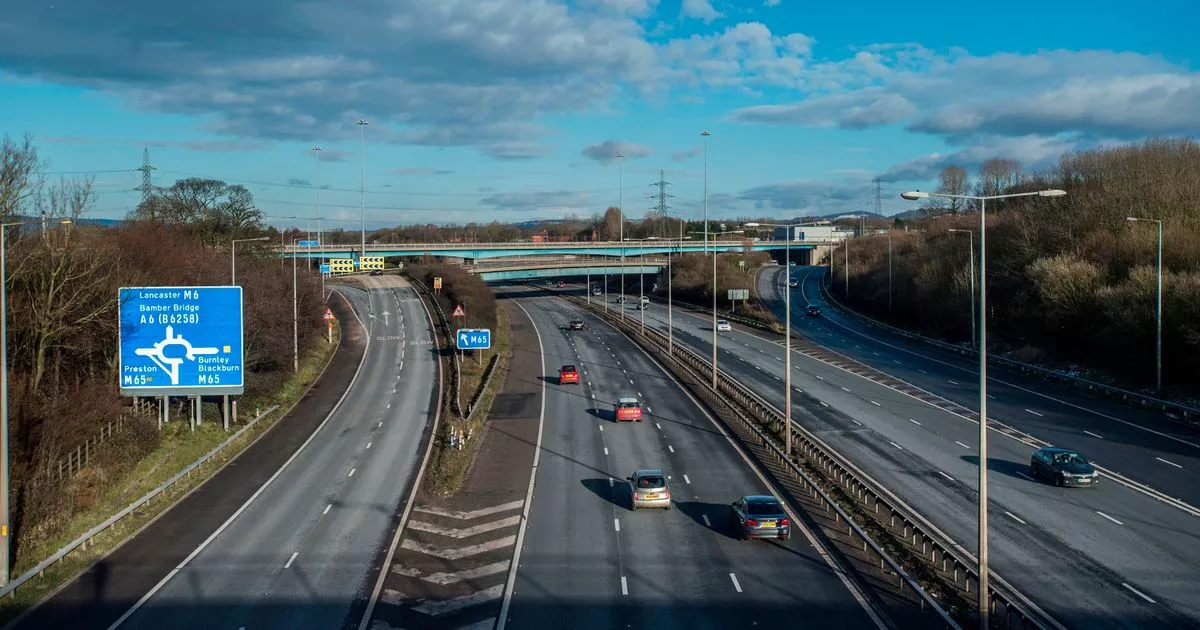Your Escape To The Country: Choosing The Right Rural Lifestyle

Table of Contents
Location, Location, Location: Finding Your Ideal Rural Setting
Finding the perfect spot for your rural lifestyle is paramount. The ideal location balances seclusion with accessibility, offering the peace you crave without isolating you completely.
Proximity to Amenities: Balancing Seclusion and Convenience
A key consideration is the distance to essential amenities. While you might desire a peaceful retreat, complete isolation isn't always practical. Consider:
- Distance to shops: How far are you willing to travel for groceries and daily necessities? Think about weekly shopping trips versus daily commutes.
- Access to healthcare: The proximity of hospitals, doctors' surgeries, and pharmacies is vital, especially for families or those with pre-existing health conditions.
- Schools and education: If you have children, the quality and distance of schools are crucial factors in choosing a rural location.
- Commuting distance: If you work remotely, reliable internet is key. If you commute, factor in travel time and fuel costs. Consider the condition of rural roads, especially in winter.
- Reliable internet and cell service: In many rural areas, reliable internet and cell service can be patchy. Investigate options and availability thoroughly before making a decision.
The Landscape and Scenery: Choosing Your Perfect Rural Backdrop
The landscape plays a significant role in your overall experience of rural living. What kind of environment resonates with you?
- Rolling hills, mountains, forests, or coastal areas? Each offers a unique aesthetic and lifestyle. Consider the views, the activities available, and the overall feeling each environment evokes.
- Climate and weather patterns: Rural areas can experience more extreme weather conditions than urban centers. Research average temperatures, rainfall, snowfall, and potential for natural disasters.
- Local wildlife and potential challenges: Research the local flora and fauna. Are there any potential hazards or challenges you need to be aware of? This could include wildlife encounters, insect infestations, or the presence of certain plants.
Community and Social Life: Finding Your Rural Tribe
While rural living offers solitude, the sense of community is often a defining characteristic.
- Size and character of nearby towns and villages: Explore nearby towns and villages to understand the local culture and amenities. Are there vibrant community events, local markets, or social gatherings?
- Opportunities for social interaction and community involvement: Rural communities often rely on strong social networks. Explore opportunities for participation in local clubs, volunteer organizations, or community events.
- Age demographics and community vibe: Consider the overall age demographic and the general vibe of the community. Is it a young, vibrant community, or more established and settled?
Practical Considerations: Budget, Property, and Lifestyle
Transitioning to a rural lifestyle involves practical considerations beyond just finding the perfect location. Careful planning is essential.
Budgeting for a Rural Lifestyle: Understanding the Costs
Rural living can be surprisingly expensive. Budgeting accurately is critical.
- Property prices and taxes: Property prices in rural areas can vary greatly depending on location, size, and condition. Research local property taxes and other associated costs.
- Maintenance and upkeep of a larger property: Rural properties often require more maintenance than urban dwellings. Factor in costs for landscaping, repairs, and potential renovations.
- Utilities, transportation, and potential rural service costs: Utilities, especially heating, can be more expensive in rural areas. Transportation costs can also increase due to greater distances to travel. Some rural areas may have higher costs for services like internet and waste removal.
Types of Rural Properties: Finding Your Ideal Home
The choice of property significantly impacts your rural lifestyle.
- Detached houses, farmhouses, cottages, or barn conversions: Each offers a unique character and level of maintenance. Consider your needs and preferences carefully.
- Land size and potential for gardening, farming, or livestock: If you plan on gardening, farming, or keeping livestock, you'll need sufficient land. Consider the time commitment and resources needed.
- Property condition and potential renovation needs: Assess the condition of any property carefully and factor in potential renovation costs.
Adapting Your Lifestyle: Embracing the Rural Pace
Rural life requires adjustments in lifestyle.
- Slower pace of life and reduced access to services: Embrace the slower pace, but be prepared for reduced access to some services and amenities.
- Self-sufficiency and resourcefulness: You might find yourself needing to be more self-sufficient and resourceful than in urban life.
- Hobbies and activities suitable for a rural environment: Consider hobbies and activities that are compatible with rural living, such as hiking, gardening, fishing, or birdwatching.
Research and Planning: Making Informed Decisions
Thorough research and planning are essential for a smooth transition to a rural lifestyle.
Thorough Research: Investing Time in Your Decision
Don't rush into a decision. Take your time.
- Visit potential locations multiple times at different times of the year: Experience the area in different seasons to understand the impact of weather and seasonal changes.
- Talk to local residents: Gather firsthand accounts from people already living in the area. Their insights are invaluable.
- Research local regulations and planning permissions: Understand local regulations related to property ownership, building, and land use.
Seeking Professional Advice: Leveraging Expert Knowledge
Consult with professionals to ensure you make informed decisions.
- Real estate agent specializing in rural properties: A specialist agent understands the nuances of the rural property market.
- Financial advisors: Seek advice on financing, budgeting, and managing the financial aspects of rural living.
- Legal counsel: Legal advice is crucial for property transactions and understanding local regulations.
Developing a Contingency Plan: Preparing for the Unexpected
Be prepared for unexpected challenges.
- Backup plan: Have a backup plan in case your chosen location or property doesn't work out.
- Seasonal changes and weather events: Consider the impact of seasonal changes and potential weather events on your plans.
- Flexibility: Build flexibility into your plans to allow for adjustments as needed.
Conclusion
Embarking on a journey towards a fulfilling rural lifestyle requires thoughtful planning and careful consideration. By evaluating your location preferences, practical needs, and financial capabilities, and by conducting thorough research, you can significantly increase your chances of a successful transition to your dream rural lifestyle. Don't hesitate to begin exploring your options today and find the perfect rural escape that suits your unique needs. Start your search for the perfect rural lifestyle now!

Featured Posts
-
 Avrupa Borsalari Ecb Faiz Kararindan Sonra Nasil Etkilendi
May 24, 2025
Avrupa Borsalari Ecb Faiz Kararindan Sonra Nasil Etkilendi
May 24, 2025 -
 M56 Motorway Closure Live Traffic And Travel Updates Following Serious Crash
May 24, 2025
M56 Motorway Closure Live Traffic And Travel Updates Following Serious Crash
May 24, 2025 -
 Artfae Daks Alalmany Fwq Dhrwt Mars Thlyl Shaml Ladae Alswq
May 24, 2025
Artfae Daks Alalmany Fwq Dhrwt Mars Thlyl Shaml Ladae Alswq
May 24, 2025 -
 Svadebniy Rekord Na Kharkovschine 38 Par Zaklyuchili Brak Data Fotogalereya
May 24, 2025
Svadebniy Rekord Na Kharkovschine 38 Par Zaklyuchili Brak Data Fotogalereya
May 24, 2025 -
 Leeds Uniteds Pursuit Of Kyle Walker Peters Transfer Update
May 24, 2025
Leeds Uniteds Pursuit Of Kyle Walker Peters Transfer Update
May 24, 2025
Latest Posts
-
 Apple Stock Soars I Phone Sales Exceed Expectations In Q2
May 24, 2025
Apple Stock Soars I Phone Sales Exceed Expectations In Q2
May 24, 2025 -
 Apple Stock Aapl Price Targets Key Levels And Technical Analysis
May 24, 2025
Apple Stock Aapl Price Targets Key Levels And Technical Analysis
May 24, 2025 -
 Understanding Apple Stock Aapl Price Movements Crucial Levels
May 24, 2025
Understanding Apple Stock Aapl Price Movements Crucial Levels
May 24, 2025 -
 Ai Ar
May 24, 2025
Ai Ar
May 24, 2025 -
 Forecasting Apple Stock Aapl Price Key Levels To Consider
May 24, 2025
Forecasting Apple Stock Aapl Price Key Levels To Consider
May 24, 2025
